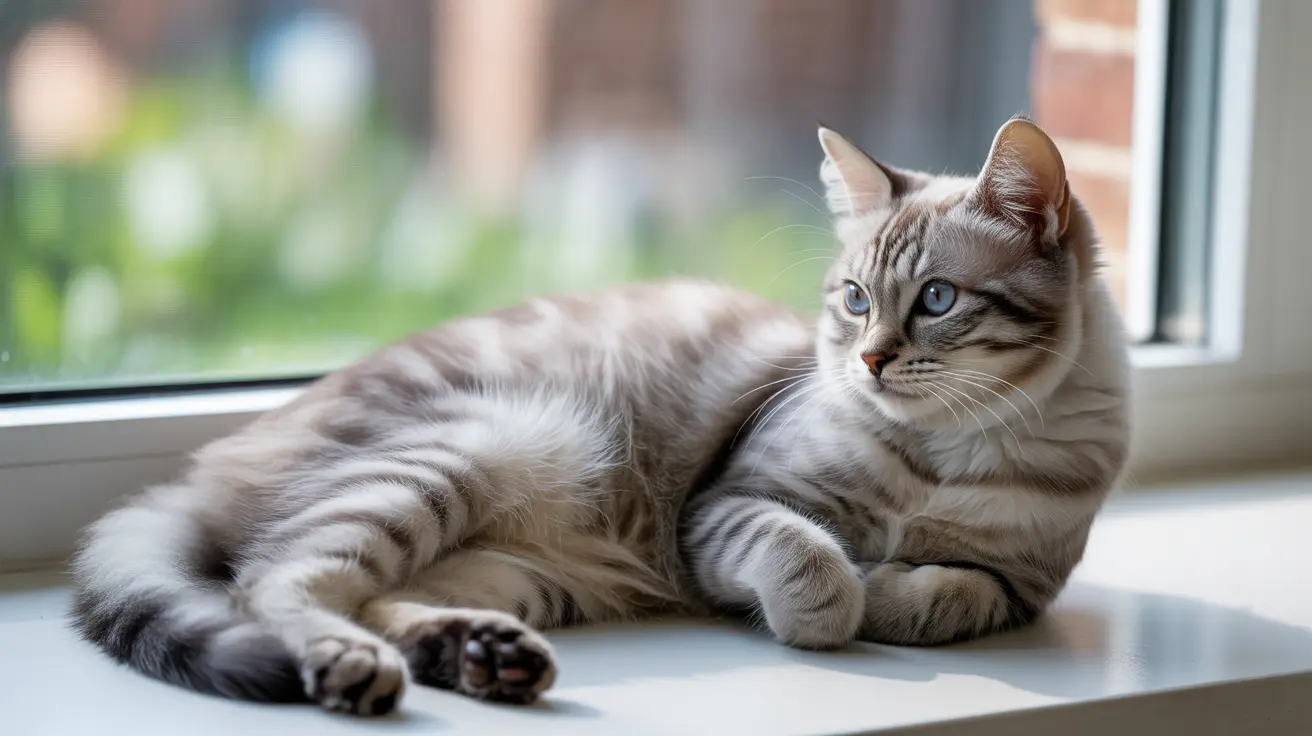Understanding Your Cat's Concerning Weight Loss
If you've noticed that your cat has become alarmingly thin to the point where you can easily feel their bones, it's time to take immediate action. While a healthy cat should have some palpable bone structure beneath a layer of muscle and fat, prominently visible or sharp-feeling bones are a serious warning sign that requires veterinary attention.
This concerning symptom can indicate various underlying health conditions, from manageable issues like parasites to more serious conditions such as kidney disease, hyperthyroidism, or cancer. Understanding the causes and knowing when to seek help is crucial for your cat's well-being.
How to Assess Your Cat's Body Condition
A healthy cat should have a gentle covering of muscle and fat over their skeletal structure. When you run your hands along your cat's sides, you should be able to feel their ribs, but they shouldn't be prominently visible or sharp to the touch. The same applies to their spine and hip bones.
Veterinarians use a Body Condition Score (BCS) system to evaluate a cat's weight status. On a scale of 1-9, where 1 is emaciated and 9 is severely obese, a healthy cat should score between 4-5. If you can easily feel or see your cat's bones, they may be scoring dangerously low on this scale.
Common Causes of Severe Weight Loss in Cats
Medical Conditions
Several serious health conditions can cause dramatic weight loss in cats:
- Hyperthyroidism
- Chronic kidney disease
- Diabetes mellitus
- Cancer
- Inflammatory bowel disease
- Dental disease
Dietary and Environmental Factors
Sometimes, the cause may be related to eating habits or environmental stressors:
- Poor quality or inappropriate food
- Dental pain preventing proper eating
- Competition from other pets
- Stress or anxiety
- Limited access to food or water
When to Seek Immediate Veterinary Care
Don't wait to seek professional help if you notice:
- Visible spine, ribs, or hip bones
- Rapid weight loss
- Changes in appetite or drinking habits
- Lethargy or behavior changes
- Vomiting or diarrhea
- Poor coat condition
Treatment and Recovery
Treatment plans will vary depending on the underlying cause but may include:
- Specialized prescription diets
- Medication for specific conditions
- Fluid therapy
- Nutritional supplements
- Regular weight monitoring
- Appetite stimulants when appropriate
Frequently Asked Questions
Why can I easily feel my cat's bones, and does this mean she is too skinny?
If you can easily feel your cat's bones with little to no fat or muscle covering, this indicates your cat is indeed too thin. While ribs should be palpable in healthy cats, they shouldn't be prominently visible or sharp to the touch. This condition requires veterinary evaluation.
What are the common health issues that cause a cat to become very thin and bony?
Common causes include hyperthyroidism, chronic kidney disease, diabetes, cancer, inflammatory bowel disease, dental problems, parasites, and malnutrition. Each condition requires specific diagnosis and treatment from a veterinarian.
How can I check if my cat's weight loss or bony appearance is dangerous?
Gently run your hands along your cat's ribs, spine, and hips. If these bones feel sharp or are clearly visible, this indicates dangerous weight loss. Also watch for behavioral changes, decreased appetite, or other symptoms like increased thirst or lethargy.
When should I take my skinny cat to the veterinarian for weight loss evaluation?
Seek veterinary care immediately if you notice visible bones, rapid weight loss, changes in eating or drinking habits, or any accompanying symptoms like vomiting or diarrhea. Early intervention often leads to better outcomes.
What treatments and dietary changes help a severely underweight cat regain healthy weight?
Treatment depends on the underlying cause but may include specialized diets, medication, fluid therapy, and nutritional supplements. Your veterinarian will create a tailored plan based on your cat's specific condition and needs.
Remember, significant weight loss in cats is never normal and requires professional medical attention. The sooner you seek help, the better the chances of successful treatment and recovery for your feline friend.






